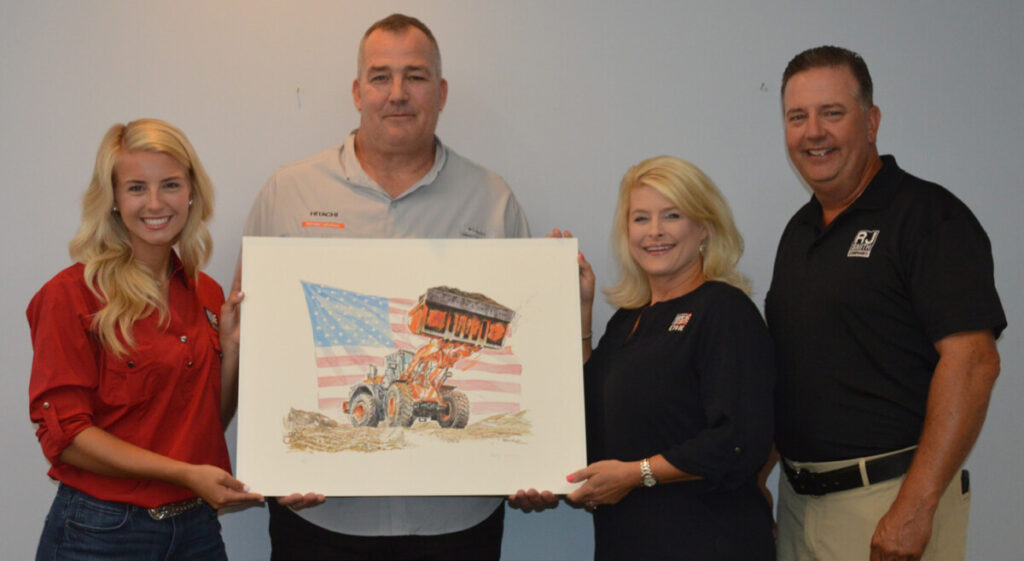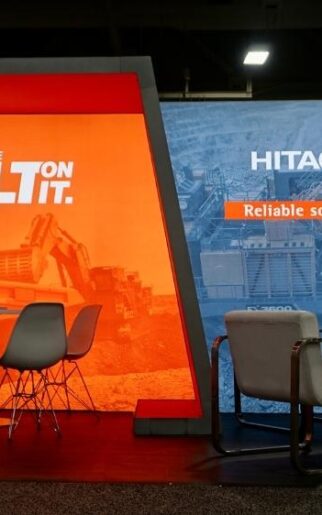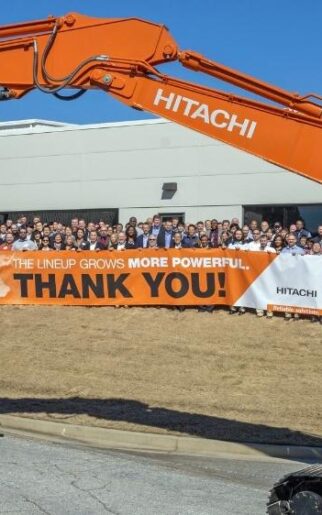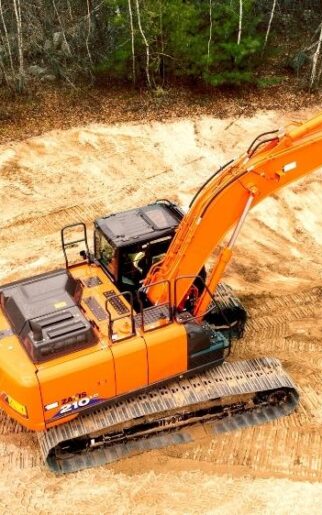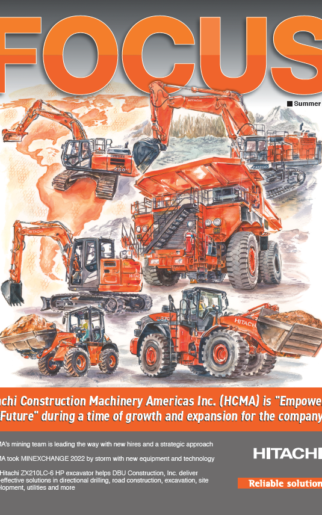It’s rare to find a dad who gives his daughter Sun Tzu’s “The Art of War” to read rather than the usual teen fluff, but Richard and Monique Smith are no ordinary parents. And this is no ordinary family.
As soon as their daughter Savannah was old enough, she was working and learning the difference aspects of her parents’ Chesterfield, Virginia, companies. She’s grown from sweeping the floors, taking out the trash, and weed eating, to now getting new experiences in building and interior design. Their younger daughters, Sheyenne (13) and Sheridan (9) are headed enthusiastically down that same path. “Balance and income statements are a part of our childrens’ growing up,” says Richard.
In 1995 Richard started his first company with the purchase of a single dump truck and hauled clay during the day, fly ash at night. Whenever a client asked if he could do more, Richard’s answer was always “no problem.” And if necessary, he proceeded to acquire any equipment, knowledge or personnel he needed.
Monique and Richard met in 1996 and soon after, Monique ran the books for the company. But rather than settle into the typical roles where the husband runs field operations and the wife runs the office, Richard and Monique had a better idea. Monique had grown up in a construction family. She not only knew how to keep the books, she knew the equipment, the manpower needs, and how jobs operated. With the background Monique had established, she identified a need to diversify the company into different entities. She is now the CEO and 100% owner of several of the companies.
Today this family of companies includes RJ Smith Construction, RJ Smith Demolition and RJ Smith General Contracting, all run by Richard. Monique owns and operates USA Civil and USA Iron and Metal. Savannah is the CEO of USA Materials. All together the network of companies offer demolition, environmental services, site work and infrastructure, utility infrastructure, trucking, general contracting, emergency services and interstate snow removal.
Each company is vertically integrated and has a distinct specialty and focus, but a single job may involve several entities—a strategy that goes back to finding a solution for every customer request. For example, when the demolition company takes down a building, they can use USA Materials to crush and screen the concrete, which will be sold retail or used as aggregate in one of USA Civil’s projects. The rebar and metal extracted from the demolition will be, packaged and sold by USA Iron and Metal. And if you need a new commercial building on the site, that’s where RJ Smith Construction and General Contracting step up to the plate. USA Civil does a lot of work building infrastructure for the grid and energy companies but can tap into equipment, people or expertise from one of the other divisions when necessary.
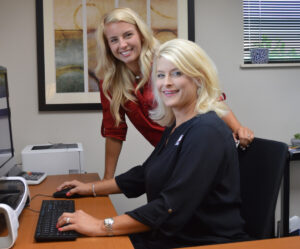 Women owned advantages
Women owned advantages
Having two women in ownership naturally attracts other talented women who might be hesitant to work in a male-dominated business and sets the bar at a new level. “We’ve always been taught that you attract what you put out,” says Savannah. “I think entrepreneurial people are attracted to a positive environment. That’s why we don’t have a problem finding good people, because good people want to be here,” she says. “In fact, most of the company’s divisions are run by women and women make up about 20 percent of the workforce,” says Monique. “There are many different areas they can get involved with if they keep an open mind because it’s not just grit work. We have a lot of women doing a lot of different things,” she says.
As an example, Monique cites Zoe, the daughter of Jody, vice president of construction for the last 17 years. “Zoe came on board, and in one year what she’s done is impressive. We put her in charge of the two wedding venues we are building, and she is handling it extraordinarily. I don’t have to push her. She is just on it. And she’s young, right out of college, managing big, multi-million-dollar facilities with me from start to finish.”
“We like to give the employee the opportunity to grow and make decisions,” says Monique. “They start from the bottom and are then able to grow and develop into their full potential.”
Unlike many construction companies, USA and RJ Smith Companies have no problem attracting young, ambitious people. “If you look at our demographics, it is awesome how many young people we have,” says Richard. “They all started at the bottom with high-intensity labor, but we are creating the next generation of managers.”
Like-minded dealer
The idea that good people enjoy working together extends to more than just the employees of the USA and RJ Smith Companies—most notably to its dealer for excavators, cranes and wheel loaders— Link-Belt Mid-Atlantic.
In 2018, prior to the start of this relationship, the USA and RJ Smith companies had worked almost exclusively with a dealer of another brand of equipment. All combined, the various entities owned a fleet of about 125 pieces of equipment, including loaders, dozers, excavators, skid steers, rollers and GPS-enabled units. “Hitachi construction equipment, specifically the loaders, seemed to be the superior product,” said Richard. “We were getting more bang for our buck, and we try to buy the right pieces so we can take care of our customers.”
But when it comes to vendors, a good machine is not enough. Lots of OEMs make good machines, but Richard says he also looks for dealers (and for that matter, customers) who share his passion for excellence—”iron sharpening iron.” That’s why the sale of one Hitachi loader in 2018 turned into the acquisition of 19 additional Hitachi loaders from 2019 to 2021, ranging in size from the smallest ZW80 to the ZW220.
“Link Belt Mid-Atlantic has a similar team mindset,” says Richard. “That’s one of the reasons everybody meshes well, whether it’s the president or the general manager or the mechanic. It’s almost like we’re talking to somebody at one of our companies.”
And it’s not just a matter of good feelings, but smart business. “You have to have great teams from top to bottom,” says Richard. “A weak vendor can take you out. The reason we work with Chris Beal (their Hitachi construction equipment salesman at Mid-Atlantic) and his team is that they take care of our business. And they also just happen to sell a really good wheel loader.”
“If we can present them with a good package, it allows them to make better decisions moving forward,” says Beal. “What’s nice about working with companies like RJ Smith and USA Civil is that they help us become better. Their partnership has helped us grow.”
Perhaps the greatest testament to the strength of the relationship between the USA and RJ Smith Companies and Link-Belt Mid-Atlantic is that the dealer insisted that RJ Smith build their new 17,000 square foot facility. The reason was simple: the dealership knows that RJ Smith and USA Civil would deliver outstanding results. “We got a perfect, grade-A, top-of-the-line facility,” says Beal.
Upgrading to Hitachi Construction Equipment
“Richard and Monique gave us the opportunity to show the ZW180-6, which is a little bigger than the old Kawasaki 150,” says Beal. “But given the type of work they do it was more productive for about the same price they were getting smaller machines for. That’s how they ended up with 19 Hitachi loaders.”
“The bulk of our loader fleet is in the Hitachi ZW180-size,” says Jeremy Setelin, vice-president of USA Civil. “We use the big loaders for materials processing. They are all equipped with Loadrite scales from Trimble, and they’re used primarily to push around big heavy concrete chunks all day long.”
In the Chesterfield concrete processing facility, the concrete demolition waste is crushed and screened right next to USA Iron and Metal. Rebar and other debris is extracted from the rubble and operators use the ZW80s to load it into Gaylord boxes that when full weigh up to 2,500 pounds.
Along with the wheel loaders, the USA and RJ Smith companies have 22 excavators in the field. “That’s a lot of equipment from one dealer, but they do a really good job servicing the equipment and communicating what our needs are for the future, so we don’t have any emergencies,” says Setelin. The ease of working with Sumitomo financing is another reason USA and RJ Smith companies chose the Hitachi loaders, says Setelin.
Given the multiple and sometimes over-lapping jobs of the different USA and RJ Smith entities, a wheel loader that could be useful in wide range of applications was desired. “We are not going to buy a machine for just one thing. If the materials business were to stop tomorrow, we could take those wheel loaders and put them to work, elsewhere.” says Setelin.
In 2020 Setelin also integrated the Hitachi ConSite telematics feed into a Trimble Pulse telematics program that embraces all the company’s construction and trucking assets. The telematics allow anybody with access and a smart phone to track the equipment, schedule maintenance and communicate with the dealer when there is an emergency.
“With the telematics, I don’t have to keep track of so many things in my head and the operators don’t have to wait for their foreman to make equipment decisions on site,” Setelin says. “It has empowered our relationships with vendors and in the end makes my job a lot easier,” he says.
Ultimately the choice came down to performance and operator preference.
“The operators wanted something that is more comfortable and responsive,” says Beal. “With the Hitachis you don’t have a large, complicated computer screen. You don’t have to punch a bunch of buttons or run through a lot of scenarios. You can run everything with your two hands on the joysticks. It’s not overbuilt or over-complicated,” he says.
Radical truth
To keep this ambitious group of people and this diverse range of businesses doing their best work requires what Richard calls a “radical truth” environment. “You only need to open the Bible to learn our value system,” he says. “We will tell you exactly how we feel. That can make you uncomfortable, or it can make you better. If people know where we stand, they can make better decisions for themselves. Some people are attracted to that, and some are not. But you don’t have to micro-manage the ones who are attracted to that. You can macro-manage them, and we’re a macro-manage type of company.”
“It is important that they know what kind of company they’re coming to work for,” says Monique. “We’re very team-oriented and we rely heavily on each other, because we have multiple companies, one person doesn’t have to necessarily do one thing. They’re constantly changing hats.”
“You could drive a truck, and if you want a career change to become a superintendent in the general contracting division, that happens here,” Richard says. “You don’t want to lose that employee you spent 20 years developing, so you give them the opportunity to switch jobs within the same culture. A lot of organizations can’t do that.
“Here employees have multiple opportunities. Everybody is critical to every operation and cross-trained as much as possible. If you build a company around that, you don’t lose customers and you don’t lose employees,” says Richard. “Larger companies hire more people to perform smaller roles. We hire fewer people who can do more.”
Safety and environment
A good portion of the companies’ work comes from federal and state governments as well as other infrastructure clients. These entities place safety and environmental protection on the top of their priority list, as the USA and RJ Smith companies do as well. The companies in the RJ Smith fold have an experience modification rate (EMR) of 0.72, which, Setelin says, is almost unheard of in such a wide-ranging scope of services. USA Civil follows suit with a strong EMR of 0.81.
Each company has a diligent safety team, daily toolbox talks, and twice a year conducts their own safety summits. Because the companies see everyone as a safety officer, this time allows for concerns to be voiced and annual training requirements to be met. Everyone is trained in OSHA 10 requirements, and most supervisors go through OSHA 30 training. Before any of the company truck drivers hit the road alone, they spend their first week riding with a veteran truck driver.
As for environmental protections, the crews are all trained and have certificates in erosion control. Some staff are also trained and certified in the more rigorous Virginia DOT and federal government standards. “We want that integrated throughout the organization, so that we’re confident in whoever goes out to do the work,” says Richard.
God, Family, Country
The family and companies’ fervor to be involved in their community has manifested into the largest flag in Virginia, located just seconds from the USA Companies headquarters. The flag soars at 212 feet, representing their following of the “extra degree” philosophy, and can be seen from I-95 and Route 288. The flag is located at Unity Park and has become a visible symbol of unity and national values in the area.
The “extra degree” philosophy states that at 211-degrees Fahrenheit, water is merely hot. “At 212 degrees it turns to steam, and steam is what drives locomotives,” says Richard. This philosophy is based on the best-selling book 212, The Extra Degree, by Sam Parker and Mac Anderson.
Their family values of God, Family, and Country flow deeply. In a speech Savannah gave at a local event, she showcases their support of community, especially the military and first responders, by stating, “These brave men and women that we stand behind and love are the reason it is possible for our nation to prosper independently and stand securely. Many things change, but one thing that will always stay true is the fact that we are the UNITED States. Our desire to unify and propel forward together is, and will always be, stronger than our faults and divisions because there is only one nation under God.”
This story first appears in Hitachi’s Fall 2021 issue of FOCUS magazine. Download the magazine here.

